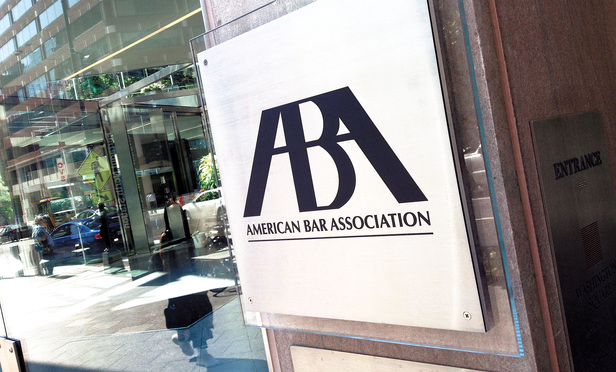The Association of Professional Responsibility Lawyers (APRL) has formally called on the American Bar Association (ABA) to reform Model Rule 5.4, which prohibits fee-sharing between lawyers and non-lawyers.
In a detailed report submitted on December 12, 2024, APRL emphasized the urgent need for modernizing the rule to address shifts in the legal marketplace, enhance innovation, and improve access to justice, while maintaining client protection through ethical safeguards.
The Push for Reform
APRL’s report highlights that the existing rule, in place since 1983, stems from outdated concerns about the unauthorized practice of law and economic competition. This rule, the organization argues, has not evolved alongside legal service delivery, stifling innovation and limiting the ability of lawyers to work collaboratively with professionals outside the legal field.
The proposed amendments aim to allow fee-sharing under specific conditions, including:

- Maintaining Professional Judgment: Lawyers must retain independent judgment per Rule 2.1.
- Supervising Non-Lawyer Involvement: Ensuring compliance with Rule 5.3.
- Reasonable Fees: Adhering to Rule 1.5 to prevent excessive charges.
- Client Consent: Obtaining written client consent before sharing fees with non-lawyer entities.
The APRL proposal aligns with international models and domestic experiments in Arizona, Utah, and Washington, D.C., where fee-sharing restrictions have been relaxed without detrimental consequences.
Addressing Concerns and Evidence from Other Jurisdictions
APRL points to jurisdictions like England, Wales, and Australia, which have long allowed non-lawyer ownership of law firms. In the U.S., experiments such as Utah’s regulatory sandbox and Arizona’s Alternative Business Structures (ABS) program demonstrate the feasibility of fee-sharing reforms. Despite initial fears, there has been no evidence of harm to clients or ethical violations.
Critics often argue that relaxing Rule 5.4 could jeopardize lawyer independence. APRL, however, counters that existing data does not support this assumption, citing the lack of adverse effects in jurisdictions where similar reforms have been implemented.
Potential Benefits of Reform
The report underscores the transformative potential of reforming Rule 5.4 for the legal profession and underserved populations. By enabling partnerships with technology experts, financial specialists, and marketers, law firms could enhance efficiency, reduce costs, and develop innovative service models such as subscription-based legal plans or AI-driven tools.
This shift could address the significant gap in access to affordable legal services, a persistent issue in the United States, where many individuals lack resources to hire lawyers.

APRL’s Vision for the Future
APRL envisions the ABA leading this change to align the legal profession with modern demands. While acknowledging the ABA’s historical resistance, particularly through its reaffirmation of the rule in 2022, APRL hopes to galvanize support among state regulators and individual jurisdictions.
The letter to ABA President William R. Bay captures this sentiment, urging the ABA to embrace progressive regulatory reform that benefits lawyers, consumers, and the broader justice system without compromising professional standards.
In conclusion, APRL’s clarion call for reform emphasizes that adapting Model Rule 5.4 is essential to meet the challenges of the evolving legal landscape. Whether or not the ABA fully embraces the proposal, APRL argues that change is both inevitable and necessary to ensure a more innovative, accessible, and ethical future for legal services.









